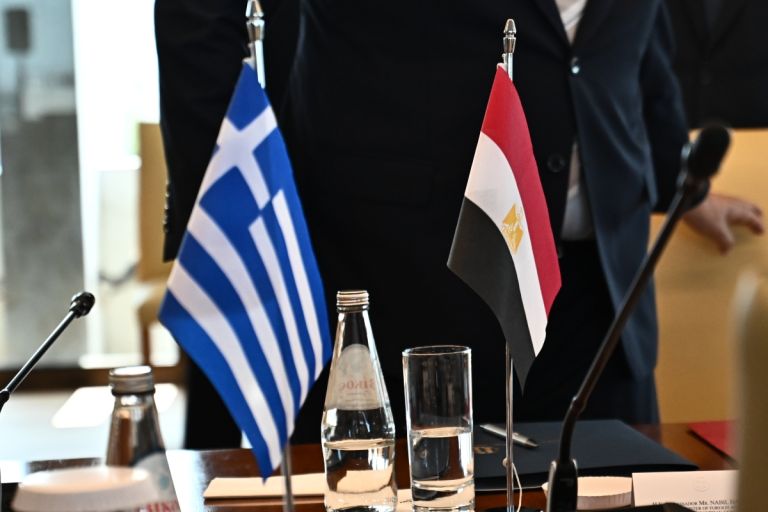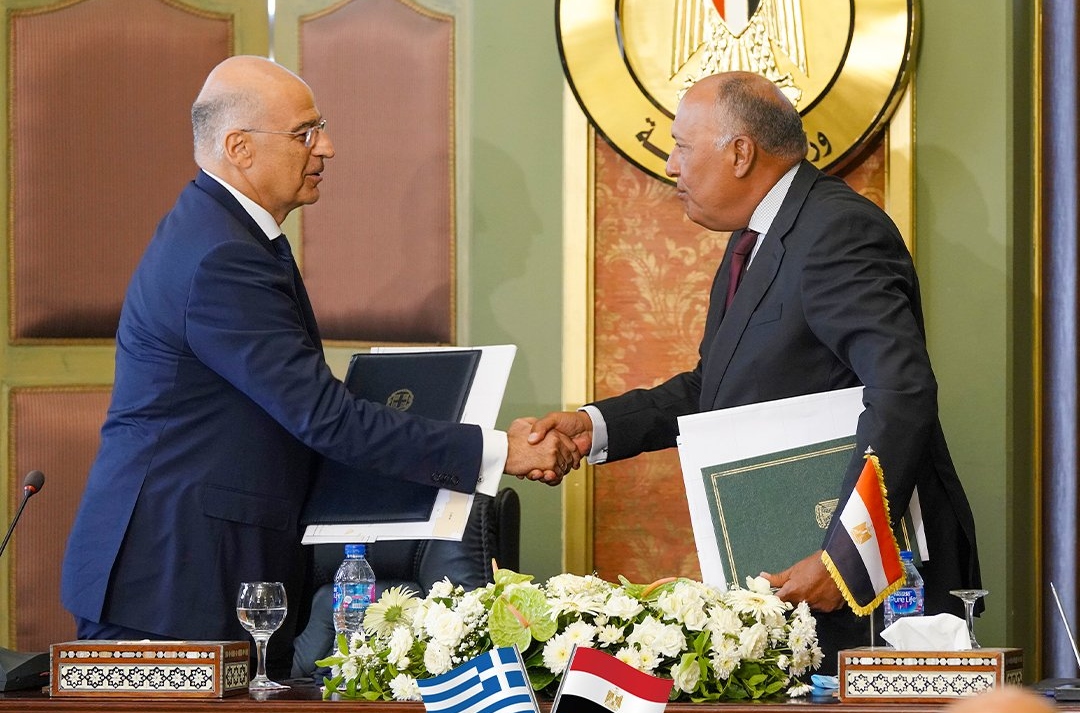Greece–Egypt EEZ Agreement: A Pillar of Stability and International Legitimacy in the Eastern Mediterranean

Πηγή Φωτογραφίας: (ΚΩΣΤΑΣ ΤΖΟΥΜΑΣ/EUROKINISSI)//Greece–Egypt EEZ Agreement: A Pillar of Stability and International Legitimacy in the Eastern Mediterranean
Five years have passed since the signing of the Exclusive Economic Zone (EEZ) delimitation agreement between Greece and Egypt, a landmark moment in regional diplomacy and a defining step in Greece’s foreign policy strategy. Greek Defense Minister Nikos Dendias, marking the anniversary, reiterated Greece’s unwavering adherence to international law and underscored that the country neither threatens the rights of others nor engages in illegal arrangements.
In a public statement, Dendias emphasized that “Greece does not infringe on the sovereign rights of other nations and refrains from pursuing unlawful agreements”, indirectly referencing maritime disputes in the Eastern Mediterranean.

greece egypt
A Strategic Milestone for Athens
The 2020 Greece–Egypt EEZ agreement has been hailed as a cornerstone of Greek geopolitical planning and a critical mechanism for ensuring peace and stability in the increasingly contested Eastern Mediterranean region. The deal delineated maritime boundaries between the two countries based on the principles of the United Nations Convention on the Law of the Sea (UNCLOS)—a legal framework that Greece has consistently championed.
Beyond its legal significance, the agreement sent a powerful political message: Greece stands for cooperation, legality, and mutual respect, not unilateralism or coercion. As Dendias made clear, Athens rejects any “predatory” deals that ignore international norms or harm the legitimate interests of neighboring states.
Regional Ramifications and Diplomatic Signaling
In a region where maritime disputes often escalate into broader geopolitical tensions—particularly in light of Turkey’s contested claims and energy exploration activities—the EEZ agreement positions Greece as a stabilizing actor and a reliable partner. By securing its maritime rights through diplomacy rather than confrontation, Greece has paved the way for further cooperation, not only with Egypt but with other Mediterranean states committed to a rules-based order.
This strategic alignment also reinforces Greece’s standing in both European and international forums, presenting it as a nation that champions peace, legality, and regional development over brinkmanship or expansionism.
A Model for Regional Agreements
The EEZ deal, while fundamentally bilateral, offers a blueprint for how maritime disputes can be resolved peacefully and legally. It stands in contrast to alternative practices in the region that sideline international law in favor of geopolitical muscle-flexing.
In today’s fraught geopolitical landscape, Greece’s commitment to lawful maritime cooperation serves as a model—and a challenge—for other nations navigating similar territorial issues. As the Eastern Mediterranean continues to draw global attention for its strategic significance and energy potential, agreements like the one with Egypt underscore the role of international law in defusing tensions and promoting sustainable partnerships.
By anchoring its foreign policy in legality and mutual respect, Greece reaffirms its role as a credible and responsible force in the Eastern Mediterranean — five years on, and looking forward.
Source: pagenews.gr
Διαβάστε όλες τις τελευταίες Ειδήσεις από την Ελλάδα και τον Κόσμο






Το σχόλιο σας